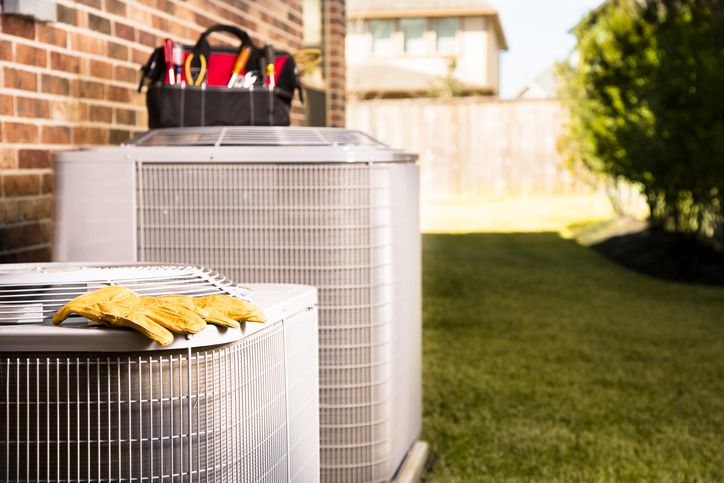
Opening a heating and air conditioning franchise is an exciting venture that requires careful planning, dedication, and a clear understanding of the steps involved. Here’s a more detailed breakdown of what it takes to successfully launch your franchise:
1. Research and Selection
Before diving into the franchise world, it’s essential to conduct thorough research. Explore various HVAC franchise options to identify one that aligns with your business goals and values. Consider factors such as:
- Brand Reputation: Look into the franchise’s history, customer reviews, and overall market presence. Top franchise brands to consider: One Hour Heating & Air Conditioning, Aire Serv Heating & Air Conditioning and Varsity Zone HVAC.
- Training and Support: Investigate the training programs and ongoing support provided by the franchisor. A strong support system can significantly impact your success.
- Market Demand: Analyze the demand for HVAC services in your desired location. Assess the competition and potential customer base to ensure a viable market.
2. Financial Requirements
Understanding the financial investment required is crucial. This may include:
- Franchise Fees: Most franchises require an initial franchise fee, which grants you the right to operate under their brand.
- Startup Costs: This encompasses expenses such as equipment, inventory, office setup, and marketing materials.
- Operating Capital: Ensure you have enough working capital to cover your expenses during the initial months as your business grows.
- Royalty Fees: Be aware of any ongoing royalty fees or marketing contributions that may be required.
Consider exploring financing options, such as loans or partnerships, to help cover these costs.
3. Franchise Application
Once you’ve identified the right franchise, you’ll need to complete the franchise application process. This typically includes:
- Submitting Financial Information: Provide details about your financial status, including assets, liabilities, and income sources.
- Background Checks: Expect to undergo thorough background checks to ensure you meet the franchisor’s criteria for ownership.
4. Franchise Agreement
After your application is approved, you’ll enter into a franchise agreement. This legal document outlines:
- Terms and Conditions: Review the rights and responsibilities of both you and the franchisor.
- Duration of the Agreement: Understand the length of the agreement and renewal terms.
- Operational Guidelines: Familiarize yourself with operational procedures, branding requirements, and any restrictions.
It’s advisable to consult with a legal professional before signing to ensure you fully understand the implications.
5. Training and Support
Once the agreement is signed, you’ll participate in the franchisor’s training programs. This phase is crucial for your success and typically includes:
- Business Operations: Learn about managing your franchise efficiently, including financial management, customer service, and staff training.
- Technical Training: Gain hands-on experience in HVAC systems, installation, and repair, which is essential for delivering quality service.
- Marketing Strategies: Understand how to leverage the brand’s marketing tools and strategies effectively to attract customers.
The support doesn’t end after training; many franchisors offer ongoing assistance, including refresher courses and operational consultations.
6. Location and Setup
Finding the right location is vital for your franchise’s success. Consider the following:
- Physical Space: Depending on your business model, you may need a physical storefront, an office space, or a service area. Assess visibility, accessibility, and proximity to your target market.
- Office Setup: Equip your office with necessary technology, software, and tools for managing operations.
- Inventory and Equipment: Purchase the required inventory and specialized equipment to provide HVAC services effectively.
7. Licensing and Permits
Operating an HVAC business requires compliance with local, state, and federal regulations. Obtain the necessary licenses and permits, which may include:
- Business License: Register your business and obtain a general business license.
- HVAC Contractor License: Many regions require HVAC contractors to have specific licenses. Ensure you meet all qualifications and complete any necessary examinations.
- Insurance: Secure appropriate insurance coverage, such as liability insurance, to protect your business and comply with legal requirements.
8. Marketing and Launch
With everything in place, it’s time to focus on marketing your new franchise:
- Branding: Utilize the franchisor’s branding and marketing materials to establish a professional image.
- Local Marketing: Implement local marketing strategies, such as community events, online promotions, and partnerships with local businesses, to create awareness.
- Launch Event: Consider hosting a launch event to introduce your franchise to the community, attract potential customers, and generate initial business.
9. Ongoing Operations
Once your franchise is operational, concentrate on delivering exceptional service:
- Customer Service: Prioritize customer satisfaction by training your staff to provide excellent service and support.
- Financial Management: Keep a close eye on your finances, including expenses, revenue, and profitability. Regularly review your financial performance to identify areas for improvement.
By William T. Bradley, CEO/Founder, America’s Best Franchises


